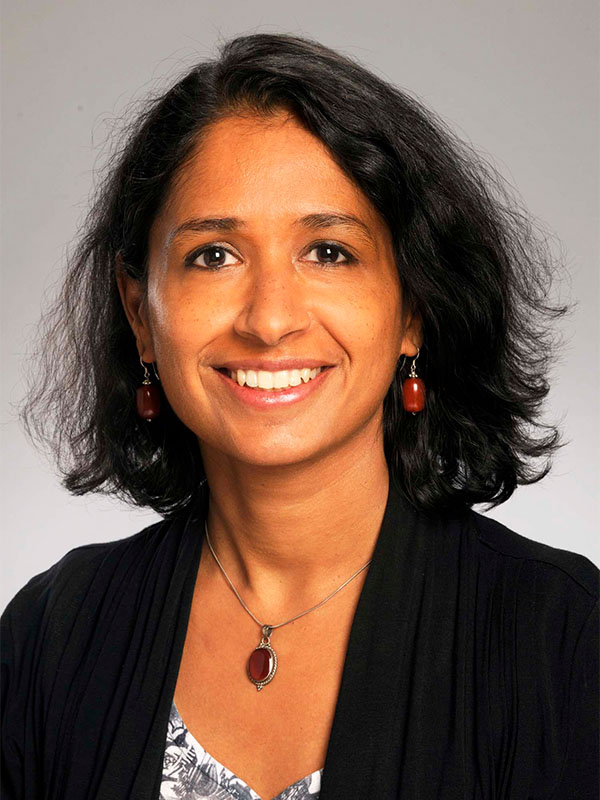A century ago, tuberculosis was the equivalent of COVID-19 today: a respiratory disease that was everywhere, killing men and women across all strata of society. Once the world discovered an effective antibiotic treatment for TB, it became mostly relegated to the margins. And yet, until the arrival of SARS-CoV-2, more people died of TB every year than any infectious disease, especially in poorer countries.
Now, a new grant from the National Institute of Allergy and Infectious Diseases (NIAID) will support scientists at Emory and three other institutions in the U.S. to further research into an airborne bacterial disease that killed approximately 1.5 million individuals and was responsible for an estimated 10 million new cases in 2020.
The goal of the Emory/Georgia Tuberculosis Research Advancement Center (Emory/Georgia-TRAC) will be to catalyze and expand collaborative multidisciplinary TB research in the U.S. and internationally; capitalize on the strengths of the Emory/Georgia TRAC universities to grow and diversify TB research in new directions; and identify, train and mentor the next generation of TB researchers and scientific leaders.

Principal investigator Neel Gandhi, MD, professor of epidemiology at Rollins School of Public Health
Emory/Georgia-TRAC will include colleagues from the University of Georgia, Georgia State University, Morehouse School of Medicine and Georgia Tech. It will also work closely with public health professionals in the Fulton and Dekalb county health departments and the Centers for Disease Control and Prevention.
“The statewide alliance helps us form a common umbrella under which TB investigators in Georgia can find new opportunities for collaborations and synergy,” says Rengarajan. “We are also using our strengths in areas like vaccines, immunology, epidemiology, systems biology and microbiology.”
Gandhi points out that that Emory investigators are already engaged in existing studies that span the spectrum of TB basic and translational science as well as cohort studies and clinical trials in multiple countries and communities locally with a high incidence of TB.
“This initiative builds on that and provides us a mechanism to entice people from different fields to collaborate on TB research and offer pilot grants for new, cutting-edge ideas,” he says.
In 2014, the World Health Organization said it wanted to see TB eliminated by 2050 — which meant reducing the incidence of TB globally to one case for a million people. Both Gandhi and Rengarajan say that it’s now increasingly clear that many countries will be unable to meet that goal. Even the U.S., which has made giant strides in disease control, still has 22 cases per million.

Principal investigator Jyothi Rengarajan, PhD, professor of medicine at Emory Vaccine Center and Emory School of Medicine
“If there’s one thing we have learned from the pandemic, it’s that a dangerous infectious disease anywhere is a dangerous infectious disease everywhere,” says Gandhi. “The impact of a respiratory pathogen such as TB being present in the world is a big reason to ensure we find ways to end this disease.”
About a third of the world’s population is infected and attempts to rein in the disease have been beset with problems including the emergence of TB strains resistant to multiple lines of drugs; a 100-year-old vaccine — the only one to be licensed — that has limitations; and a paucity of funding for new research and interventions.
Recognizing that it was critical to accelerate and consolidate research efforts in TB, Emory launched the Emory Tuberculosis Center a couple of years ago to house the university’s various research efforts under one umbrella entity. Gandhi and Rengarajan say the new NIAID funding, which amounts to nearly $1 million annually over five years, is “ideally timed” to capitalize on a solid foundation of skills, knowledge and infrastructure.
Apart from Gandhi and Rengarajan, the Emory Tuberculosis Center is co-led by fellow faculty member, Kenneth Castro, MD, professor of Global Health, RSPH and former chief of the Division of TB Elimination at the CDC.
Emory/Georgia-TRAC will function as an arm of the Center which comprises investigators across the scientific and policy spectrum. Over the last decade, Emory has made significant investments in TB, growing the number of principal investigators involved in researching the disease from 5 to 24, a 380% increase. Concurrently, annual funding has also increased from $3.4 million in 2010 to $12.5 million in 2020, a 267% increase. Most of the grants are funded by the National Institutes of Health, which includes the NIAID.
Emory/Georgia-TRAC is one of four such TB research centers being funded by the NIAID. The three others are: Interdisciplinary NexGen TB Research Advancement Center at the Texas Biomedical Research Institute in San Antonio, Texas; the Johns Hopkins University TRAC in Baltimore, Maryland; and the University of Washington’s TRAC in Seattle, Washington.
Some of the key experts involved in the Emory-TRAC leadership include Sarita Shah, Cheryl Day, Henry Blumberg, Russell Kempker, Rafick Sekaly and Jeffrey Collins, all at Emory. Collaborators at UGA include Christopher Whalen and Fred Quinn.
